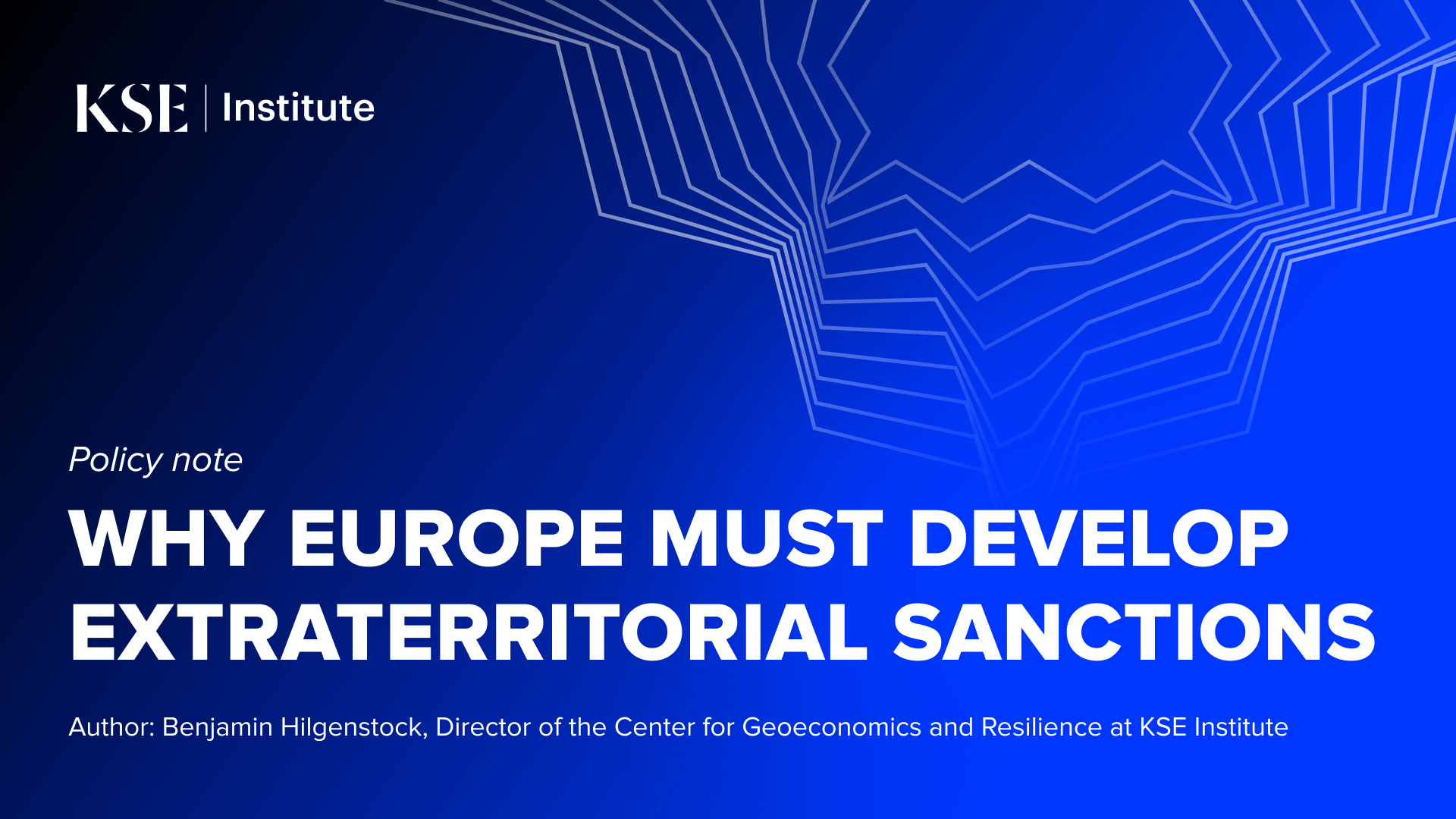- Kyiv School of Economics
- About the School
- News
- Why Europe Must Develop Extraterritorial Sanctions – New Policy Note by KSE Institute
Why Europe Must Develop Extraterritorial Sanctions – New Policy Note by KSE Institute
12 November 2025

The sanctions imposed against Russia following its full-scale invasion of Ukraine in 2022 are not universal but adopted and enforced by a “coalition of the willing.” This has important implications for their implementation and effectiveness, as countries outside this coalition actively participate in efforts to reduce their impact. These findings are presented in a new Policy Note by Benjamin Hilgenstock, Director of the Center for Geoeconomics and Resilience at KSE Institute, titled “Why Europe Must Develop Extraterritorial Sanctions.” The author argues that Europe must go further and sharpen the tools that enable it to project its considerable economic power outside its borders, bring Russia’s aggression against Ukraine to an end, and preserve the rules-based international order.
The countries of the sanctions coalition account for about 60% of global GDP (roughly $65 trillion) but only 15% of the world’s population. Many key emerging markets – including China, India, Türkiye, Saudi Arabia, Argentina, and the UAE – are not part of the regime and, in some cases, play an active role in supporting Russia’s circumvention efforts. For instance, Russian oil exports have been redirected almost entirely to new buyers, while, in the area of export controls, Russia continues to receive dual-use goods essential for its war effort from and through countries such as China, the UAE, and Türkiye.
The Policy Note highlights that extraterritorial measures – secondary sanctions – have proven highly effective in enforcing sanctions beyond the sanctions coalition’s jurisdictions particularly regarding Russian LNG, the shadow fleet and export controls. However, only the United States has applied this instrument systematically. The European Union, meanwhile, has carefully ventured into the realm of extraterritorial measures over the past three and a half years despite its principled opposition to secondary sanctions. In 2023, it introduced a mechanism to list third-country entities involved in sanctions circumvention. In 2025, the EU established the legal basis to target non-EU financial institutions and port authorities facilitating sanctions evasion – an important step toward extending the reach of European restrictive measures beyond its borders.
Given potential changes in US sanctions policy, the Policy Note concludes that Europe must prepare to maintain economic pressure on Russia largely on its own. To do so, the European Union needs to further develop and strengthen extraterritorial enforcement mechanisms capable of ensuring compliance beyond its jurisdiction.
